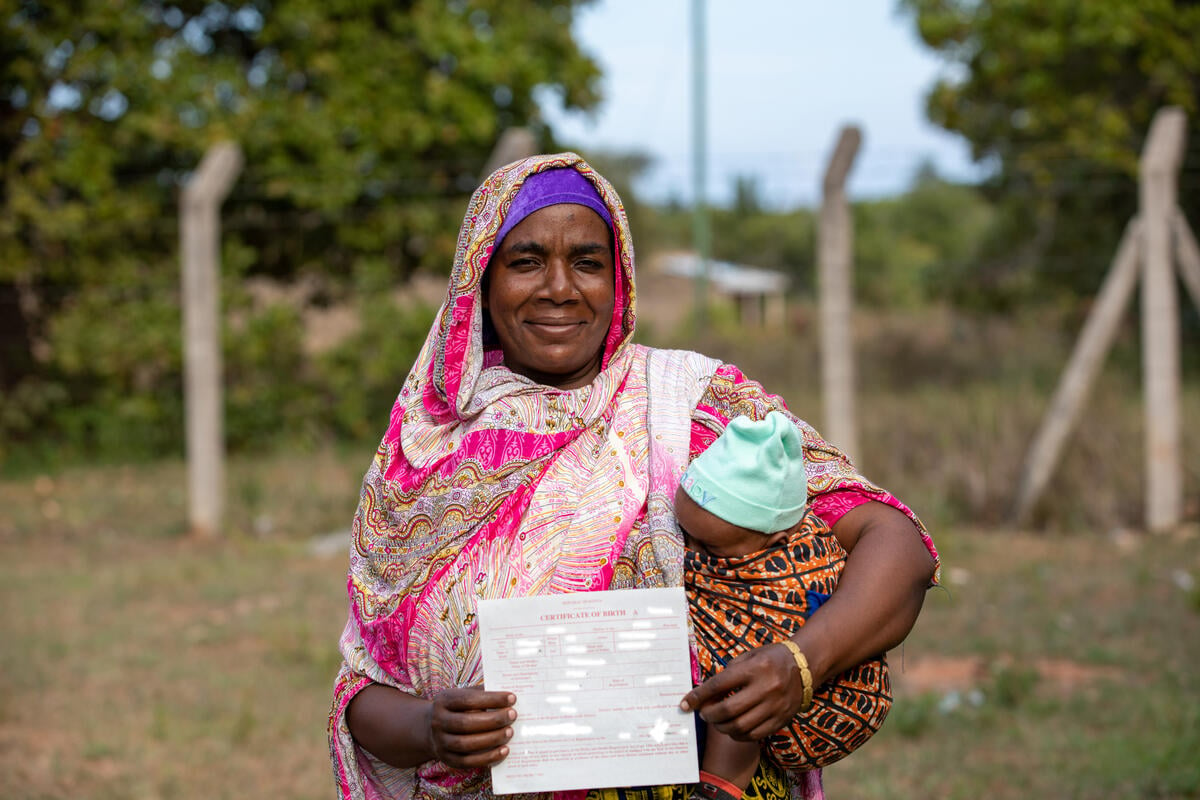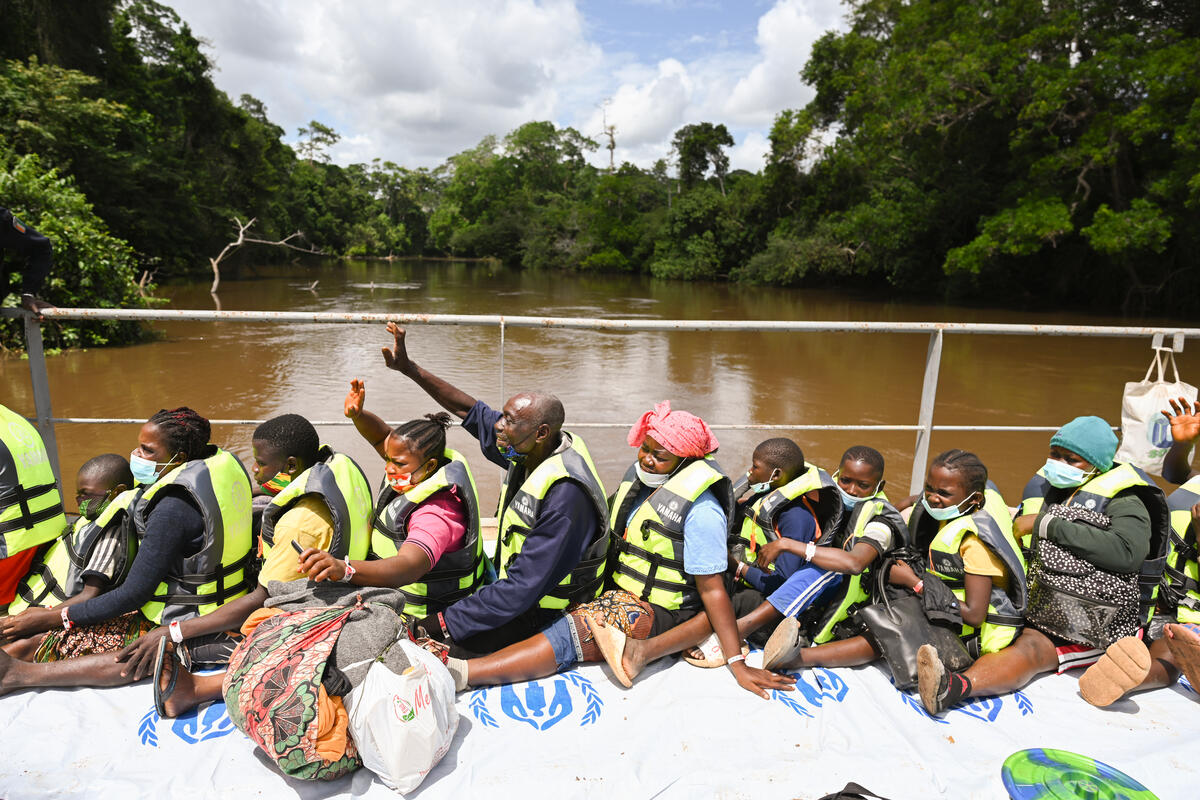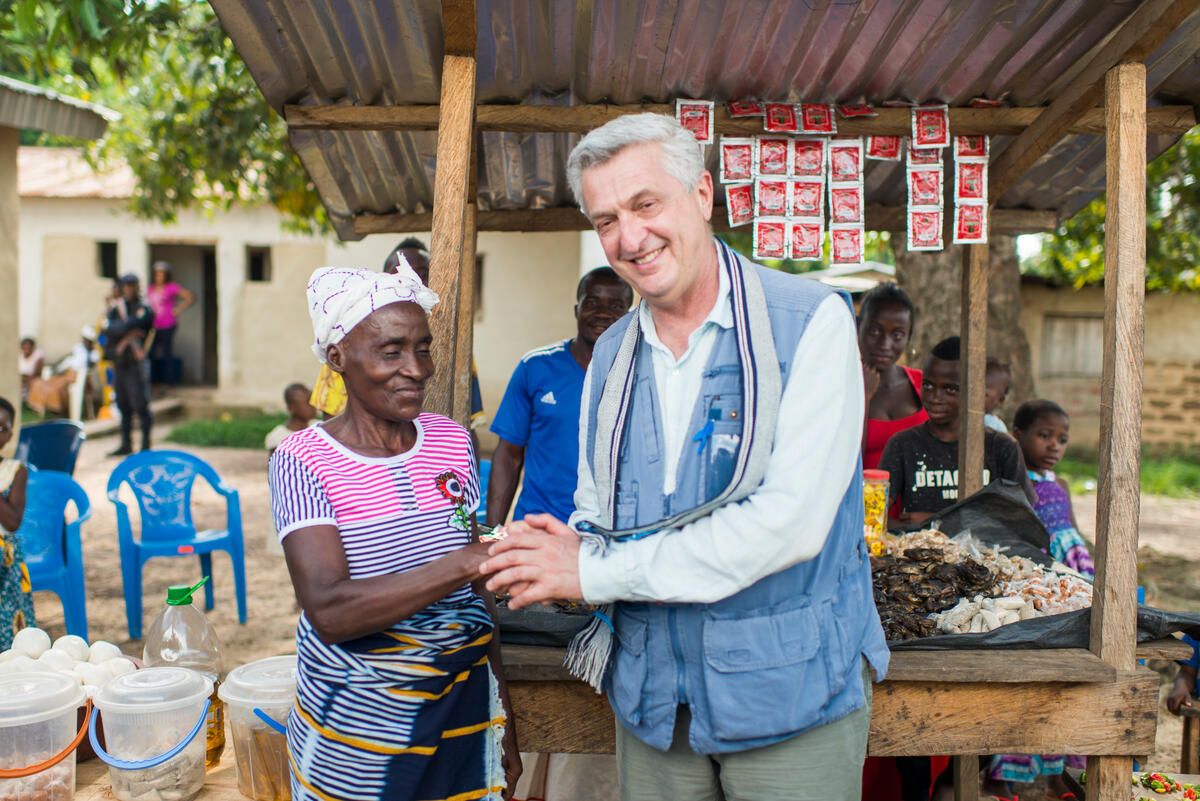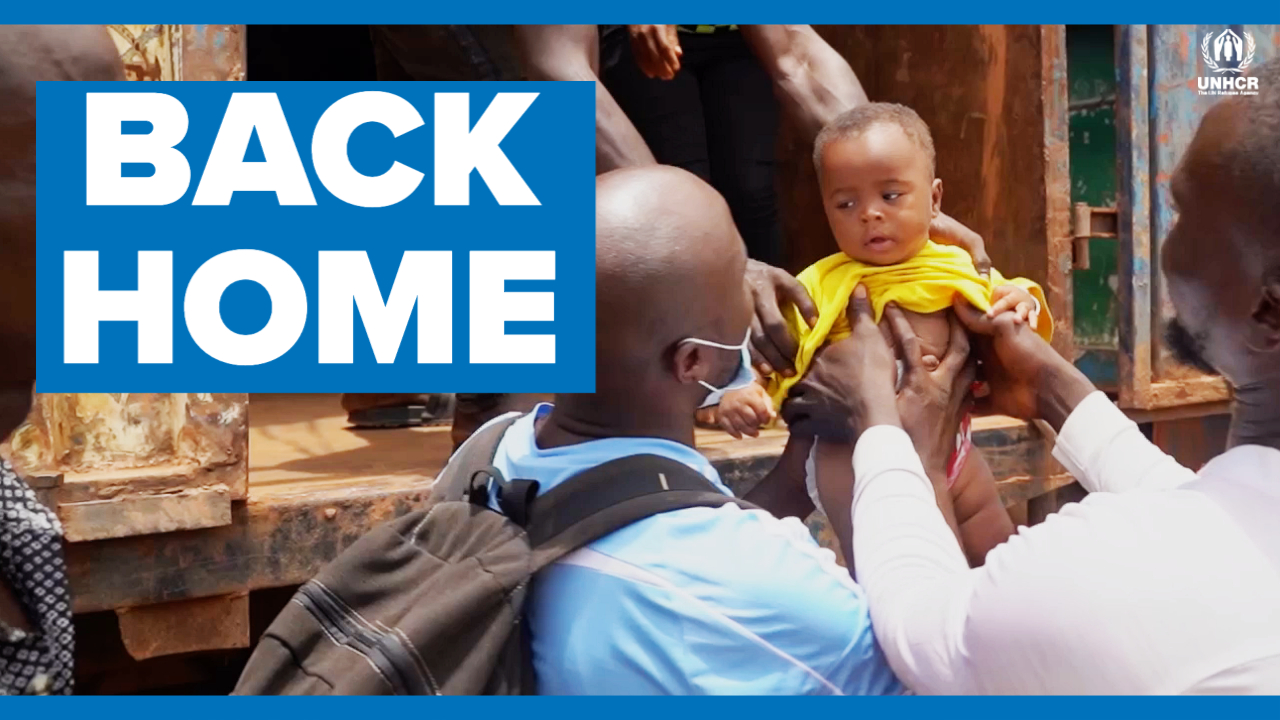UNHCR alarmed by deteriorating situation in Guinea
UNHCR alarmed by deteriorating situation in Guinea
UNHCR on Wednesday expressed grave concern over the fate of some 400,000 Liberians and Sierra Leoneans in Guinea amid renewed rebel attacks and growing local hostility toward the refugees.
The attacks by unidentified armed groups in border areas of south-western Guinea have prompted UNHCR to again scale down its activities on behalf of the region's refugees.
Several villages in the Guéckédou and Macenta areas of Guinea have come under attack since November 27, ending a one-month lull in hostilities in the region bordering Sierra Leone and Liberia. As a result of these attacks, food distribution to refugees in Guéckédou was suspended and UNHCR staff deployed to Kissidougou, north of Guéckédou, have been recalled to Conakry. Food distribution to 150,000 refugees had recently resumed in the area after an eight-week interruption that began in September when a UNHCR staff member was murdered in Macenta by unidentified attackers. Armed groups are believed to be operating from Liberian and Sierra Leonean territory.
"This instability poses a grave threat to Africa's second largest refugee population," said Abou Moussa, UNHCR's top official in the West Africa region. "Without security, aid workers cannot provide even basic assistance to those in need."
There are reports of panic among the population of Guéckédou following a Tuesday morning radio broadcast by Rally for the Democratic Forces of Guinea rebels warning that they now control surrounding areas and will soon attack the city itself. Gunfire was reported in the city early Wednesday. Guéckédou residents attempting to flee towards Kissidougou earlier in the week were reportedly blocked by the Guinean army, which was apparently trying to contain the population outflow. A checkpoint has reportedly been erected in Faranah prefecture to prevent a population outflow from Kissidougou to Conakry.
UNHCR and its partners had been working to relocate border camps in the Guéckédou area further inland. With the renewed attacks, the necessity for relocation is all the more urgent. The Guinea government has approved UNHCR's proposal to move 30,000 refugees from Macenta to Nzérékoré. A further 80,000 refugees in border areas in Guéckédou will be relocated to new camp sites in Kissidougou, while those in Nzérékoré will remain in the prefecture, further inland in former camp sites that need rehabilitation. Sierra Leone refugees will be given a choice between relocating within Guinea or returning with UNHCR assistance to stable areas in Sierra Leone.
UNHCR's office in Conakry has set up an Emergency Relocation Operation Task force to begin preparing for the movement, which appears increasingly risky in view of the renewed fighting.
In the Nzérékoré region of south-eastern Guinea, meanwhile, the governor has informed UNHCR of plans to evacuate the entire civilian population from Thuo, across the border from the Liberia's Nimba County. The region has reportedly been the scene of recent cross-border conflict. UNHCR has agreed to a request by the Nzérékoré governor to relocate refugees from Thuo to the Bossou camp, which was initially set up as a transit camp for repatriation to Liberia.
UNHCR cares for more than 460,000 refugees from Sierra Leone and Liberia in Guinea. The country has been a host to refugees for more than 10 years. But the recent attacks have sparked growing local animosity toward the refugees, whose presence is blamed for the cross-border insecurity.
UNHCR had been repatriating Liberian refugees until the end of the dry season in mid-July. Some 130,000 Liberians remain in Guinea. An increasing number of Sierra Leoneans have spontaneously returned home since September following the deteriorating security situation in Conakry and areas where camps are situated. Inside Sierra Leone, UNHCR is assisting more than 15,000 returnees who cannot go back to their original homes because they are in areas controlled by rebels of the Revolutionary United Front, which is fighting government forces.









